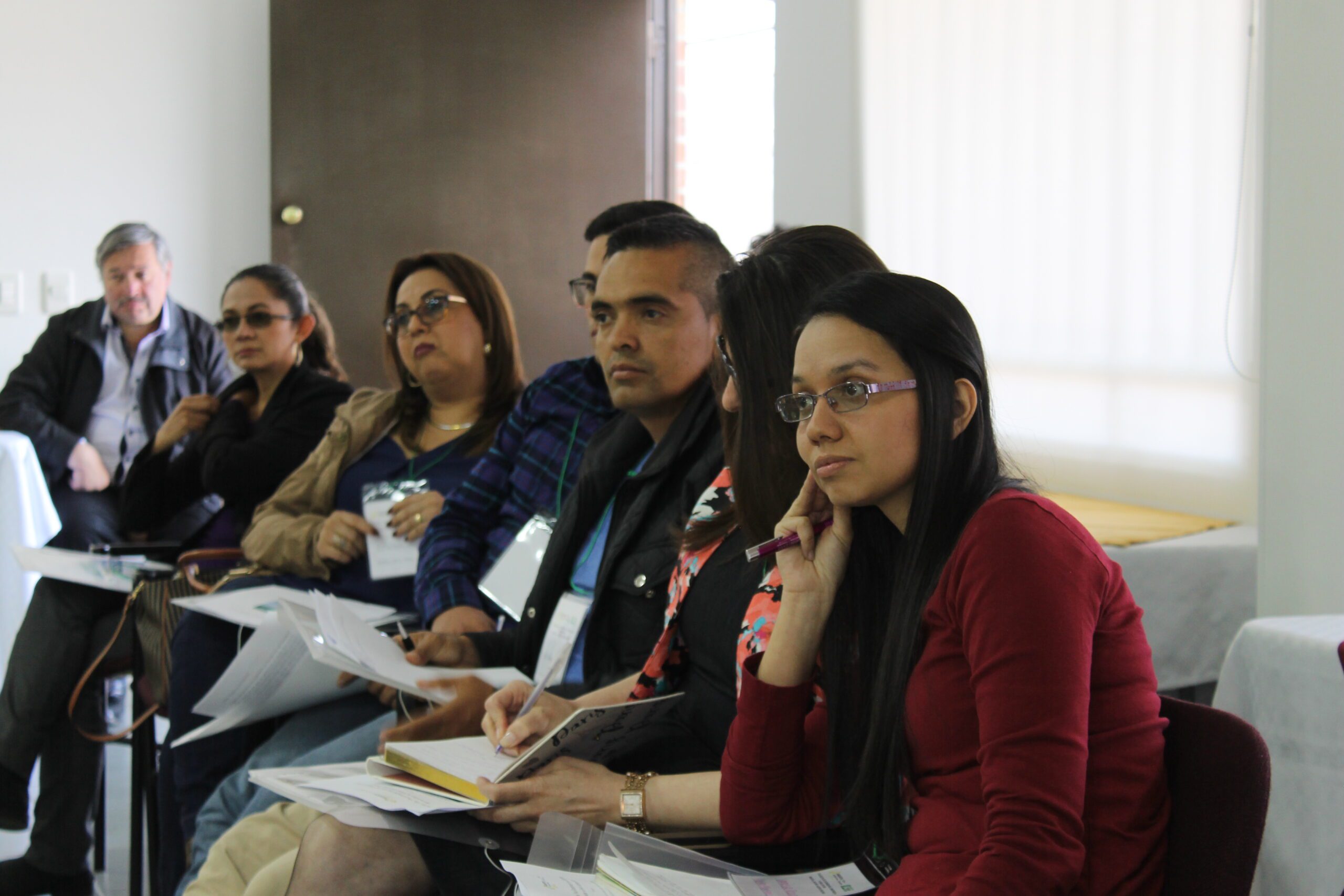
Sixteen participants took part in a four-day Facilitator Training Workshop on the Learning to Live Together Programme, which was held in Bogotá from 16 to 19 August bringing together religious communities, formal education institutions, and representatives from civil society and faith-based organizations. This included the participation of representatives from 11 Buddhist, Christian, Islamic, and secular organizations.
The workshop aimed to familiarize participants with the principles of the Learning to Live Together (LTLT) Programme, its methodologies, and educational approach, and to reflect on violence affecting children and youth in specific contexts in Colombia. It acknowledged the role that ethics and value-based education can play, particularly in a post-conflict setting. During the four days, participants gained the knowledge and capacities required to design an ethics education program based on the LTLT Programme, adapted to their educational contexts and tailored to the specific needs of the children or youth, and acquired knowledge on Monitoring and Evaluation tools that can be used during implementation of the Programme.
In order to understand the obstacles and challenges preventing compliance to the Rights of the Child in Colombia, the workshop discussed the particular forms of violence faced by children and youth in the country: Children in Colombia experience most violence in their homes, with 120,000 cases reported between 2008 – 2017, and of these, girls aged 10-14 are the most affected, comprising over 35% of the cases reported. In addition, every 33 seconds in Colombia, a girl is a victim of sexual exploitation. However, cases are rarely reported as adults tend not to believe victims of such abuse, or because children are afraid to confront authority.
Ms. Rocío Mojica, Child Protection Officer for UNICEF Colombia stressed that all types of violence are unacceptable and that the culture of silence surrounding violence must be broken. Nurturing values and practicing respect towards children will allow them to practice respect in turn, leading to a more peaceful and harmonious society. Participants also reflected on the role of society in tackling the issue of violence against children, with one participant noting: “I have become aware that we live in a violent society and that we are not doing enough to combat it.”
After four intensive days of learning from one another and fulfilling these objectives, participants committed to implementing LTLT within their communities and strengthening interfaith and intercultural collaboration and action. This builds on establishing a Community of Practice in the area, aiding the development of the Global Network of Religions for Children (GNRC) in Colombia.
One participant described the exercises in the workshop as helping them feel less alone in their mission to combat violence:
“It made me realize that we have many things in common: sometimes you think that you are doing things alone but there are people that work in other places, sometimes nearby, and we can create a network.”
A gathering celebrating the 10th Anniversary of the LTLT Programme took place prior to the workshop.
We thank the GNRC Colombia, Mr. Fabian Salazar and Ms. Olga Lucía Sierra for their valuable collaboration. We also thank Mr. Larry Madrigal for his support and leadership, and the Fundación Caminos de Libertad for having facilitated the location. Finally, we thank those working to implement the Learning to Live Together Programme in their institutions, and the participants for their enthusiasm and commitment during the workshop. Your work is an important step in the journey to creating a better world for children, youth, and their families.
